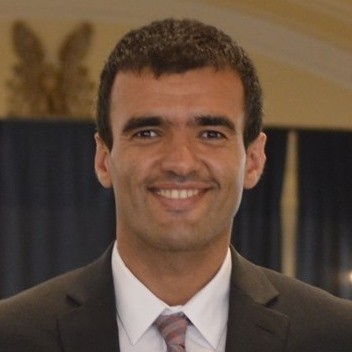Nicholas F. Maxemchuk
Education
· Ph.D. Doctor of Philosophy, Systems Engineering, University of Pennsylvania, May 1975.
· M.S. Moore School of Electrical Engineering, University of Pennsylvania, May 1970.
· B.S. Bachelor of Electrical Engineering, The City College of New York, June 1968. (Graduated Magna Cum Laude).
Academic Experience
· 2001 - Present Full Professor Columbia University
· 2008 - Present Chief Researsher IMDEA Networks, Madrid
· University of Melbourne, Visiting Academic Oct. 99.
· Opponent: KTH Sweden, June 1997.
· Department Visiting Committee, Comp. Sci., University of Texas at Austin 1989-92.
Non-Academic Experience
· 2009-2012 Consultant NYC MTA
· 2008 Chief Scientist Telcordia
· 2007-2010 Consultant Bell Labs, Murray Hill, NJ
· Technical Advisory Board - start-upEnrichnet 2000-2002
· 1996 - 2001 Technology Leader AT&T Research Labs
· Technical Advisory Board start-up - BrightLink Networks 1998->2001
· 1984 - 1996 Department Head AT&T Bell Laboratories
· 1976 - 1984 MTS Bell Labs
· 1968 - 1976 MTS RCA David Sarnoff Res. Cntr.
Current Membership in Professional Organizations
· IEEE, Eta Kappa Nu and Tau Beta Pi
Honors and Awards
· 2006 IEEE Koji Kobayashi Award for Computer and Communications
· 1997 William R. Bennett Prize Paper Award for S. Low, N. F. Maxemchuk, S. Paul, "Anonymous Credit Cards and Its Collusion Analysis," IEEE Trans. on Networking, dec. 1996, vol. 4, no.6, pp 809-816
· 1996 R&D 100 Award for "Document Copying Deterrent System"
· 1989 Elected Fellow of the IEEE
· 1988 Leonard G. Abraham Prize Paper Award, for N. F. Maxemchuk, "Routing in the Manhattan Street Network," IEEE Trans. on Commun., May 1987, vol. COM-35, no. 5, pp. 503-512., also s elected for IEEE ComSoc 50th anniv. iss.
· Selected for IEEE ComSoc 50th anniv. iss., and included in the DQDB standard, E. L. Hahne, A. K. Choudhury, N. F. Maxemchuk, "DQDB Networks With and Without Bandwidth Balancing," IEEE Trans. on Commun., Vol. 40, No. 7, July 1992, pp 1192-1204
Saman Zonouz is an Associate Professor at Georgia Tech in the Schools of Cybersecurity and Privacy (SCP) and Electrical and Computer Engineering (ECE). Saman directs the Cyber-Physical Security Laboratory (CPSec) which recently hosted a U.S. Congressional visit to demonstrate its research outcomes. His research (supported by ~$136M collaboratively) focuses on security and privacy research problems in cyber-physical systems including attack detection and response capabilities using techniques from systems security, control theory and artificial intelligence. Saman recently delivered the Plenary Keynote in DOE’s Cybersecurity Conference to a large audience (~2,000 people). His research has been awarded by Presidential Early Career Awards for Scientists and Engineers (PECASE) by the United States President, the NSF CAREER Award in Cyber-Physical Systems (CPS), Significant Research in Cyber Security by the National Security Agency (NSA), Faculty Fellowship Award by the Air Force Office of Scientific Research (AFOSR), Google Hall of Fame Security Award, Provost Research Award, Outstanding Faculty Research Award by the Georgia Tech College of Computing, and Cybersecurity Fellowship by the Georgia Tech College of Engineering. His research group has disclosed several security vulnerabilities with published CVEs in widely-used industrial controllers such as Siemens, Allen Bradley, and Wago. Saman is currently a Co-PI on President Biden’s American Rescue Plan $65M Georgia AI Manufacturing (GA-AIM) project. Saman was invited to co-chair the NSF CPS PI Meeting as well as the NSF CPS Next Big Challenges Workshop. Saman has received two Georgia Tech Teaching Awards for his courses “Cybersecurity of Drones” and “Critical Infrastructure Security”. Saman has served as the chair and/or program committee member for several conferences (e.g., IEEE S&P, USENIX Security, CCS, NDSS, DSN, and ICCPS). Saman obtained his Ph.D. in Computer Science from the University of Illinois at Urbana-Champaign.









